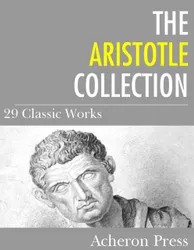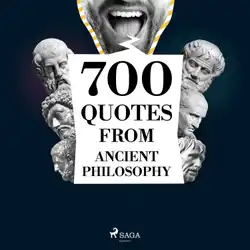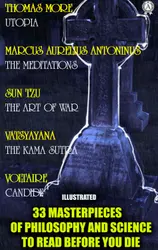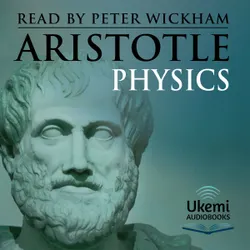Aristotle's "Posterior Analytics" is a cornerstone of epistemology and scientific methodology, delving into the nature of knowledge and the principles of demonstration. Through a rigorous exploration of syllogistic reasoning, Aristotle outlines the foundational elements of scientific knowledge, distinguishing between what is known and how it is known. His analytical style reflects the systematic clarity typical of his works, embodying the transition from pre-Socratic inquiry to a more formalized study of logic and science. Set against the backdrop of the philosophical inquiries of Classical Greece, this text not only elucidates the mechanisms of deducing knowledge but also establishes a dialectic framework for understanding empirical evidence and causation. Aristotle, born in 384 BCE, was a polymath whose extensive inquiries spanned numerous subjects, including ethics, politics, and biology. The intellectual milieu of his time, marked by a burgeoning quest for rational explanation, undoubtedly influenced his writing of "Posterior Analytics." His mentorship under Plato tempered by his later critiques of Platonic ideals informs his inquiries into the nature of demonstrable knowledge. Coupled with his empirical observations, these experiences coalesce into a profound analysis of how knowledge can be attained and validated. For scholars and students both familiar and unfamiliar with Aristotelian thought, "Posterior Analytics" stands as an essential text for understanding the development of scientific reasoning. It invites readers into a dialogue about the nature of knowledge, prompting them to consider not just the conclusions we reach, but the methodologies used to arrive at those conclusions. Engaging with this work will enhance one's appreciation for the philosophical foundations that underpin science and logic today.

10 Masterpieces You Have to Read Before You Die, Vol.5 : The Odyssey, The Republic, Meditations, The Divine Comedy, Faust and others
Homer, Plato, Aristotle, Marcus Aurelius, Niccolo Machiavelli, Dante Alighieri, Johann Wolfgang Von Goethe, Leo Tolstoy
audiobookbook
The Aristotle Collection
Aristotle
book
The Parva Naturalia. On Sleep
Aristotle
audiobook
700 Quotations from Ancient Philosophy
Aristotle, Marcus Aurelius, Cicero, Epictetus, Heraclitus, Plato, Seneca the Younger
audiobook
500 Quotes to Learn Wisdom from Classical Greek Philosophers
Aristotle, Epictetus, – Heraclitus Of Ephesus, – Plato, Socrates
audiobook
Yale Required Reading - Collected Works (Vol. 1)
Herodotus, Sappho, Homer, Hesiod, Alcaeus, Archilochus, Anacreon, Theognis of Megara, Simonides of Ceos, Bacchylides, Pindar, Aeschylus, Sophocles, Euripides, Aristophanes, Thucydides, Plato, Aristotle, Lysias, Demosthenes, Apollonius, Callimachus, Theocritus, Plutarch, Epictetus, Gilbert Murray
book
33 Human Science Masterpieces You Must Read Before You Die. Illustrated : The Art of Public Speaking, The Meditations, The Kama Sutra and other masterpieces
Edwin A. Abbott, Aristotle, Dale Carnegie, Gilbert Chesterton, René Descartes, Epictetus, Marcus Aurelius Antoninus, Sigmund Freud, Hermann Hesse, David Hume, Lao Tzu, Confucius, Swami Abhedananda, Anonimous, David Herbert Lawrence, Niccolò Machiavelli, Benedictus de Spinoza, John Mill, Prentice Mulford, Thomas More, Friedrich Nietzsche, J. Allanson Picton, Plato, Sun Tzu, Vatsyayana, Voltaire, H. G. Wells, Frances Bacon
book
33 Masterpieces of Philosophy and Science to Read Before You Die (Illustrated) : Utopia, The Meditations, The Art of War, The Kama Sutra, Candide
Thomas More, Marcus Aurelius Antoninus, Sun Tzu, Vatsyayana, Voltaire, Edwin A. Abbott, Aristotle, Dale Carnegie, Gilbert Keith Chesterton, René Descartes, Epictetus, Sigmund Freud, Hermann Hesse, David Hume, Lao Tzu, David Herbert Lawrence, Niccolò Machiavelli, John Mill, Prentice Mulford, Friedrich Nietzsche, Plato, Bertrand Russell, H.G. Wells, Frances Bacon
book
Physics
Aristotle
audiobookbook
Poetics
Aristotle
book
Organon
Aristotle
audiobook
Nicomachean Ethics
Aristotle
audiobookbook
